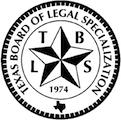Texas law requires that the accused be seen by a judge within 48 hours after an arrest. The judge will inform the individual of the charges they are facing, whether there is an affidavit (which is a sworn statement, supporting the charges). The judge will make sure that the accused understands his rights (which are similar to the Miranda rights), which include:
- Representation by an attorney or having one appointed if they cannot afford one;
- The option to remain silent during all proceedings;
- The presence of an attorney during any interview with police officers or attorneys representing the state.
An examining trial, a hearing to establish reasons for the arrest or probable cause. The judge is required to allow reasonable time for the accused to consult with a lawyer and set a reasonable bond, if allowed by law.
Bail/bond hearings typically are when the judge will set certain conditions to ensure that the accused returns to court if he or she is released from jail. Bail is set at the judge’s discretion and determined on an individualized basis. Unless they are charged with capital murder, all defendants have the right to be released on bail if they can provide enough collateral. If the bail is set too high, a criminal defense attorney can request a bond reduction hearing and must show that a defendant does not have enough collateral to pay such a high bond, is not a flight risk, has ties to the community and is not a danger to the public or the alleged victim. A judge can also possibly decide whether to release the accused under a personal recognizance bond, which does not require that a surety be paid or that other forms of collateral be offered.






















